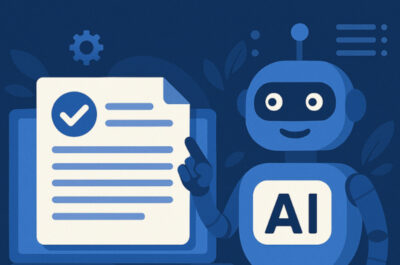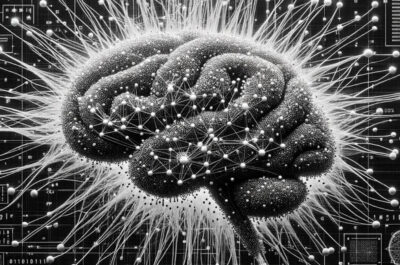Im Rahmen der Next2012 in Berlin haben wir den Technologie-Historiker George Dyson interviewt, der das Buch “Turing’s Cathedral: The Origins of the Digital Universe” veröffentlicht hat. Das Buch beschreibt wie eine Gruppe rundum John von Neumann das MANIAC-Projekt durchführten, dessen Aufgabe es war einen Computer zu kreieren der zur Entwicklung der Wasserstoff-Bombe beitragen sollte. George Dyson und ich haben nach seiner Keynote über die Themen des analogen Computings, über die Möglichkeit, dass Menschen Telepathie anwenden könnten und über die moralisch ambivalenten Ursprünge des digitalen Zeitalters gesprochen. Im Folgenden lest Ihr das Gepräch im englischen Originalton.
I’m here at Next Berlin speaking with George Dyson, who just gave a keynote on the digital universe. Thanks for talking to Netzpiloten.
You’re welcome!
So, you grew up with a theoretical physicist for a father and a mathematician for a mother and very close to what you talk about in
the book you recently had published. Did that have a major influence on how you ended up feeling about computers and the digital world?
 Yes, I mean, we all see what’s happening in so many different ways and I try look at it from the other side, which is the side of the numbers. We’re on the human side and the other side of the mirror is this universe of numbers. It’s an interesting thought experiment to ask what if you were in that world of numbers what would it look like from the other way? And that used to be something kind of crazy. You almost would be insane to think of it that way, but more and more that really is the way the world is. There is a universe of numbers that is starting to do things in our world and if you go to a meeting like this, you’re seeing all this people who are essentially trying to find a home for numbers. Even something like Google is just a very large set of numbers and if you can think of a new app, which is just something, a number, you can download to your phone. As we see you can be rewarded overnight for that.
Yes, I mean, we all see what’s happening in so many different ways and I try look at it from the other side, which is the side of the numbers. We’re on the human side and the other side of the mirror is this universe of numbers. It’s an interesting thought experiment to ask what if you were in that world of numbers what would it look like from the other way? And that used to be something kind of crazy. You almost would be insane to think of it that way, but more and more that really is the way the world is. There is a universe of numbers that is starting to do things in our world and if you go to a meeting like this, you’re seeing all this people who are essentially trying to find a home for numbers. Even something like Google is just a very large set of numbers and if you can think of a new app, which is just something, a number, you can download to your phone. As we see you can be rewarded overnight for that.
You wrote the book “Turing’s Cathedral” which recounts the story of how John von Neumann and his team essentially invented the digital universe by adapting Alan Turing’s one-dimensional model of universal computing and creating a high-speed, random-access storage matrix. Do you think that John von Neumann or Alan Turing or any of the people who worked on the MANIAC project could have envisaged the impact that it would have?
They could have envisaged it, but it would be pushing it too far to say that they did envision it. The person who clearly envisioned it was this Norwegian-Italian mathematical biologist Nils Barricelli. He more than anyone at that time saw this whole thing coming in a very profound way.
You speak about the digital universe in very organic terms and he saw …
Yes. He saw it that as well.
That’s not how most people would think about it…
Yes, it’s an interesting thing. We’re sitting in the most digital of all worlds and the most exciting thing is the paper business cards (laughing) (referring to excitement about business cards being doled out beside us).
The characters are quite interesting in the book — the people behind it. You tell a bunch of different stories.
Yeah, they are human stories. The book has been getting absolutely … captivating the media. It’s been getting all these different reviews and people see all these different angles in the book. There was a review about three days ago in India by an Indian reviewer who saw it as a superhero comic. I don’t read modern superhero comics, but what he said was incredibly true. He said this is the story where Alan Turing is Doctor X and von Neumann is — I don’t know these characters — the Wolverine and that all these people in the book are the superheros who were carrying out Doctor X’s idea. And I think that’s a very good analogy.
Yeah! They almost had this hacker mentality as well … And von Neumann was almost this Steve Jobs character who had this vision and was able to organise people…
Well, yeah, and he could push people to do things in a way that others couldn’t.
At the time when von Neumann and his team were doing this were there other models that he could have gone with? He came up with this two-dimensional matrix and that’s the architecture that everything has been based on since.
He came up with it to solve a particular, specific problem and if he had been trying to solve a different problem he might have come up with something else. What’s almost unbelievable is that we stayed with that exact same way of doing things for almost 60 years and never changed. I think that would have surprised him. He would have expected, you know, in two years we would be doing computing on some different kind of machine.
Is that difficult to change now? Has it given us advantage and disadvantages?
I think we’re kind of stuck because it’s just become so all-pervasive and so cheap. It’s like the genetic code on which organisms run. There’s all sorts of different ways it could be coded but once we developed that translation system, you know how we translate the nucleotides to proteins, to do anything different becomes very hard. You can imagine some organisms invading from outer space that were different, but it’s hard to imagine it evolving on earth now that it’s so embedded. I think it’s the same with computing. What we are doing is evolving layers where we build, like here in Berlin, the new city is going to evolve but the old subway routes are not going to change.
At the time they didn’t patent their technologies. Is that correct?
Yes! Which was very controversial at the time. It’s a huge question. Clearly things were developed under the von Neumann project that could and should’ve been patented at the beginning. To attract the engineers, they were promised that this institute would take out patents and they would share. It was a very benevolent policy. And somehow that got dropped. The kind view is that it was dropped for the good of science to make this machine available everywhere. The slightly more suspicious view is that not taking out patents was tremendously to the benefit of IBM. Von Neumann was consulting for IBM and IBM engineers were visiting every week and copying all the details. So not patenting it was very good for science and very good for IBM. I think von Neumann, he just couldn’t resist the opportunity. He was an opportunist.
There are so many patent disputes going on. We seem to be a state of permanent technological patent war. Do you think that poses a huge problem for creativity and science?
It’s a huge problem! It’s a disaster. I mean, it’s sad to see us making such progress in certain directions and huge steps backward in others. The only word to use is abuse. It’s an abuse of the patent system. Why did Google spend 12 billion dollars on these old Motorola patents? How much new research could you support for 12 billion dollars? It’s not good if patents were meant to encourage new ideas not to lock us into old ideas. Every patent has a certain broadness of application, so if you have enough patents there’s a point at which nothing can be invented that you don’t have a patent for and then the game’s over.
Where do you see that going now?
Personally, I think the whole system may collapse but it’s a little bit like in literature. In theory now you could write a programme that could eventually write every book. So do we need authors any more? “Oh that book? We haven’t gotten to it yet, but it’s number …” There’s a fantastic Borges story about that, The Universal Library, and it’s the same with ideas. Humans are good at having new ideas and these sort of mechanical systems that … It’s gone to far. The patent system is broken.
Yeah, because many ideas are a variation of something that has gone before. You see something and think that could be used in a different way or adjusted. And that’s kind of what happened, it seems, with Turing and von Neumann.
Yeah, right, it’ll be very interesting to see what happens. In the next ten years something is going to have to change with the patent system or else we are simply going to end up with one or two companies controlling all the patents.
So, when you were researching the book, you had access to all the journals and notebooks belonging to the technologists behind the project. What was it that struck you most when you were reading?
Just how creative they were and how much they got done. I spent effectively eight years working on this project and I realised that the small group of people who actually worked on the project, six or 12 people, men and women, you know, they did the whole thing in less time than it took me to write about it. It’s quite sobering realising how quickly they worked. They were ahead of their time and it came out of wartime. It’s hard to remember how quickly things got done under the pressure of wartime and that sort of momentum kept going after the war.
The birth of the digital universe was all very tied in with the development of the Hydrogen Bomb. Very fast computers were required to do the calculations required to test the bomb and that’s where von Neumann and his team came in …
Yeah, that was kept quiet at the time but I felt –that was one reason I wrote the book — that it was important to tell that story of how it really happened. We don’t really have a common creation myth of how this world began. It didn’t really begin by somebody saying „let’s have personal computers“.
Did the people involved have any moral qualms about the fact they were creating this weapon of mass destruction?
They had tremendous moral qualms and some people refused to work on it and some people worked very enthusiastically and in the middle where a lot of people who just said „well, you know, we may or may not should build this weapons, but we certainly should build computers.”
You mentioned in your keynote the move to analogue computing and I was just wondering if you could elaborate on that.
 Yes, and first I would say back to this moral question … The importance of the computing beginning out of this great moral question should be very clear. We have weapons that can kill all the people in the world and we need to remember that today we face very similar moral questions in that all this power of, as we well know, of Google and Facebook and all that can be used to liberate people or it can be used to control people and we have to remember that that moral choice is something we have to always be careful of. Of course, here in Berlin … nowhere else would you see that more clearly. That there is always a chance that things go wrong and that power in the hands of the wrong people could do just as much harm as the hydrogen bomb. It’s our job to be careful. As to analogue. Digital computing proved so successful so quickly that we’re sort of in love with it. That’s why everything is the digital revolution, the digital conferences and so on, and it’s very refreshing to see Next asking the question „what is after digital?“ Because in the real world most of the computation is not digital. It’s analogue computation. If I look at this ecosystem of companies that we’re in the middle of, the most successful ones are actually doing analogue computation. They’re using digital computers but something like Facebook or Google really is an analogue computer. It’s no longer a digital computer. In Google, the data has no value until you build the links to where the meaning is and that is an analogue map. It’s not a digital map. And Facebook, the value is in the analogue computing of this network of human relationships. It’s interesting how if you can spot especially all these startups wandering around trying to figure out what they are going to do, the ones who see that analogue need are doing very well.
Yes, and first I would say back to this moral question … The importance of the computing beginning out of this great moral question should be very clear. We have weapons that can kill all the people in the world and we need to remember that today we face very similar moral questions in that all this power of, as we well know, of Google and Facebook and all that can be used to liberate people or it can be used to control people and we have to remember that that moral choice is something we have to always be careful of. Of course, here in Berlin … nowhere else would you see that more clearly. That there is always a chance that things go wrong and that power in the hands of the wrong people could do just as much harm as the hydrogen bomb. It’s our job to be careful. As to analogue. Digital computing proved so successful so quickly that we’re sort of in love with it. That’s why everything is the digital revolution, the digital conferences and so on, and it’s very refreshing to see Next asking the question „what is after digital?“ Because in the real world most of the computation is not digital. It’s analogue computation. If I look at this ecosystem of companies that we’re in the middle of, the most successful ones are actually doing analogue computation. They’re using digital computers but something like Facebook or Google really is an analogue computer. It’s no longer a digital computer. In Google, the data has no value until you build the links to where the meaning is and that is an analogue map. It’s not a digital map. And Facebook, the value is in the analogue computing of this network of human relationships. It’s interesting how if you can spot especially all these startups wandering around trying to figure out what they are going to do, the ones who see that analogue need are doing very well.
You mentioned in your talk that man is a very social animal and how this has kind of changed our social interactions. What did you mean specifically?
Well it changes how we implement those relationships, which more interestingly are not changing. If you look at how we evolved it was in small groups. Twelve maybe 30 people living in trees, communicating all the time. Monkeys just chattering back and forth largely about social rank. Who’s the top monkey? Who’s children are fighting? And now we find this world and what do people like to do? They like to communicate, but they are not communicating with the whole world. There’s sort of this urge in Twitter to have 40,000 followers. Most of them aren’t reading your Tweets. It’s a small subset. I’m sure at Facebook they have scientists looking at the numbers, but it’s back to the same numbers we started with. There’s a certain number of relationships that we, you know, like your cellphone. Maybe you have 1000 numbers in your phonebook, but you’ve got around 20 that you call all the time.
Do you think that this urge to tell people on Twitter or Facebook when something happens is just part of this urge to document that we were here and have a story writ large?
Yes and the success of Facebook and Twitter is driven by this. As primates, everything depends on social rank. You know I lived with a person who studied primates once and there was actually a monkey living in the household, so I learned that as a child, who actually grew up partly with a monkey. It’s all based on who dominates who and look at what people do on Facebook and Twitter they say „oh, I’m at this concert“ or „I published this“. I mean, it’s all about establishing social rank. And it can be kind of depressing because you are seeing all these people who are, you know, moving up faster than you are, but that’s what people want.
Back to the moral question thing and power. I don’t know was it Turing who said it was impossible to have a digital dictatorship…
Well, that was my interpretation of what he proved as a mathematical point. Say if Google takes over the world and says we are going to stop all codes that try to resist Google, it’s impossible. You know, looking at a code you can’t tell what that code will really do and that’s essentially what you see happen in real dictatorships. I mean as soon as you have a Soviet system that tries to control everything the exceptions arise and people figure out ways to get around the system.
Are you going to take a break now or are you going to write another book after the eight years you spent on that one? (laughing)
(laughing) I’m thinking about it. My publishers want to know what’s next. I’m not going to do another big historical project. Actually I think I’m going to write the book that I want to write that will be fun looking very broadly at what is happening to the human mind. I spent a lot of time in Alaska trying to understand the frame of mind of people 10,000 years ago and then I think I want to look at what life may be like if the human mind really becomes something quite different. Almost science fiction.
How different? Because of its interaction with technology?
Yes. What happens if … Essentially if we become telepathic. I mean, everybody’s plugged into their iPhone and you know that is going to disappear. It’s a question of when these devices will go to younger and younger children to where it’s just sort of part of being born to become connected. Then things like language may fundamentally change and I’m interested in that question. It has to be done as speculative fiction but that’s what I’m thinking of right now.
Yeah, because you lived for a while in the wilderness.
Yeah, (laughing) I lived in a tree for three years, which is the opposite extreme. Here we live in a world where these machines are running at billions of cycles per second and a tree grows over a thousand years. There’s no reason, which is another one of my beliefs, that computing grew out of this need for very fast machines. To do these bomb calculations you had to be able to look at billions of seconds, but there’s just as much important computation on long-time scales. What happens to the climate of the earth over a thousand years? That’s as important a calculation to do. It doesn’t get as much attention and in the end result that may be … At the end of my talk the host asked „well isn’t this one great big computer?“ and it is. And it’s also lasting for a very long time. I think is something positive that we are now building pretty much a long-term memory for planet earth and that — again — could be very evil or could be very good. It could actually solve some of these big problems like keeping the climate safe for living things.
Artikel per E-Mail verschicken
Schlagwörter: Georg Dyson, Interview, NEXT Berlin, Turings Cathedral




2 comments